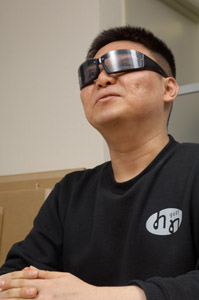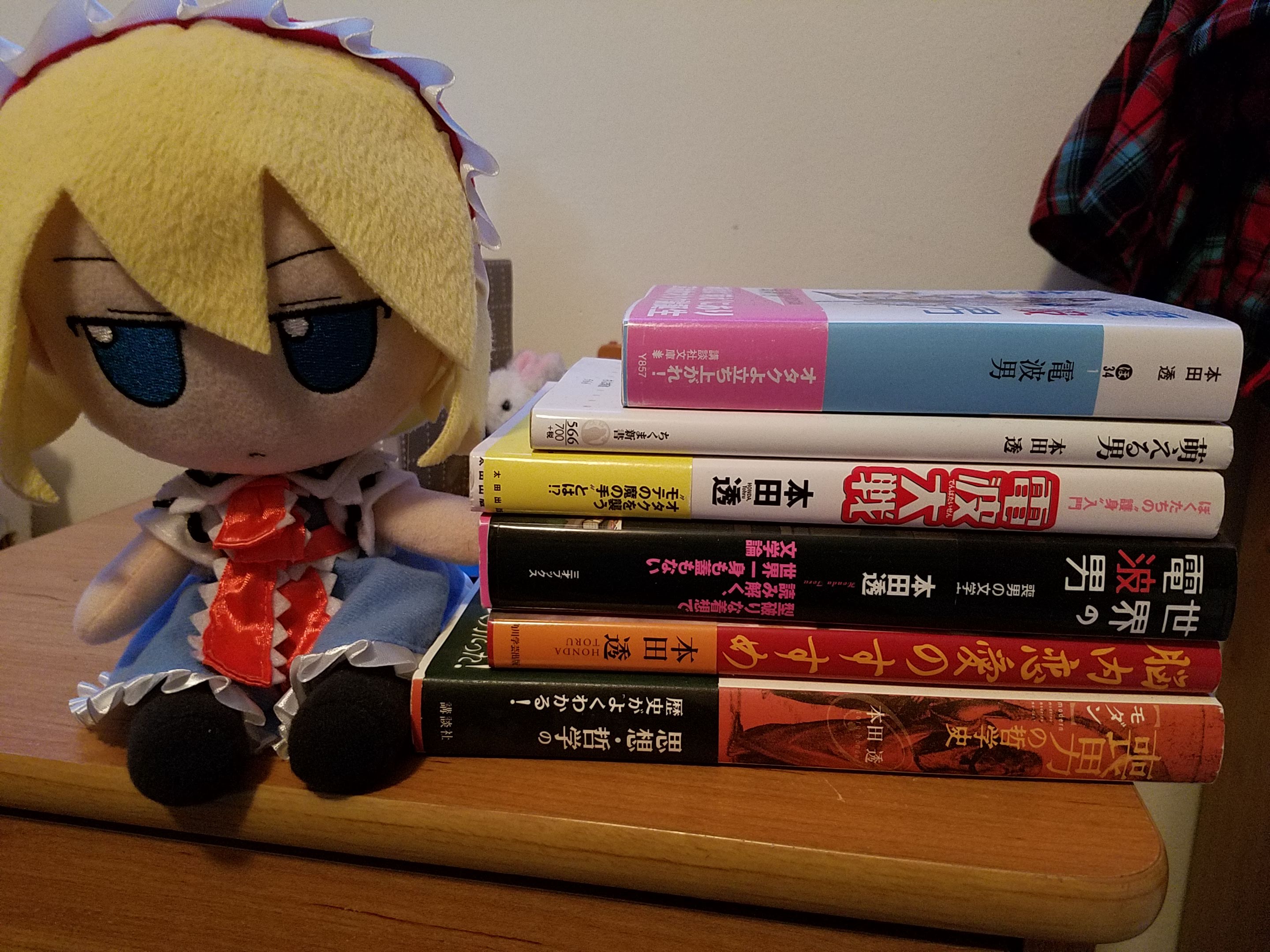Curated archive
Here is an (incomplete) collection of links I've gathered related to Honda Toru. This
includes a mix of still hosted sites, Archive.org's saved pages and pdf's as well as my
own archives. All things linked here are placed I looked during my own research. Explore to your heart's content!

From "Love is Dead, Long Live the Otaku"
"Love is an illusion anyway, so even if you aren't popular with women you can be fulfilled
in your ownmind." (Honda and Yanashita 2008, pp. 69, 72-73)
Honda Toru (本田透 ) was born May 12th, 1969 and became a prominent advocate of reforming the
ideaof hegemonic masculinity in Japan. He found success in 2005 with the publication of
Denpa Otoko, adirect counter-argument directed towards the the popular Densha
Otoko published a year earlier. In it herevealed radical ideas regarding the
preservation of a pure otaku mindset, the viability of finding love intwo-dimensional
characters, discussions of moe, and coining the term “Love Capitalism.” His
unfilteredcritiques and relatable nature set him apart and established popularity within
otaku circles, with his novelselling 33,000 copies in three months. His words eased
fellow otaku by announcing that you are not alonein these thoughts, the problem lies in
society
Since Honda-san's books have never been translated I took it upon myself to import the ones I
could find with the hopes that my Japanese will eventually be adequate enough to
translate them. Here is what I have so far:

Honda Toru stubbornly persists as an enigma both inside and outside of Japan. He is largely
considered to be a radical otaku pseudo-philosopher with questionable ideals and is
generally not taken seriously. However, I think a few of us who stumble upon him can
find something worthwhile. Through my writing of "Love
is Dead, Long Live the Otaku" I had to sort through hundreds of images of
Tohru Honda from Fruits Basket to even find anything about this guy. Much of the
information about Honda-san is either limited to Japanese interviews, a wikipedia
article or one of his four translated interviews (Asahi, Journeyman, Moe Manifesto,
Frog-kun's). Other information likely is lost to time due to how niche some delusional
otaku social critic is. However, I genuinely believe in what he discusses (to varrying
levels). I wrote my paper "Love is Dead, Long Live the Otaku" to both satisfy my own
need for it to exists, but also to spread the word of the marginalized otaku from a
different time. Otaku culture should never be normalized and we should indulge in the
unususal. Standardization of thought leads to the destruction of individuality. Waifuism
can and should be taken seriously and the lessons of personal fulfillment should be
known to those who need to hear it. Because learning to give up is the best lesson you
will ever learn.
I may not be popular, but I live on.












